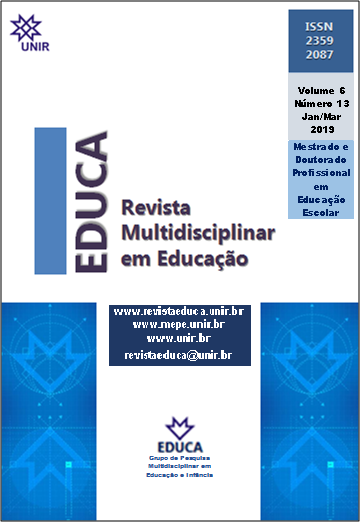The literature of Clarice Lispector as an instrument of subjectivation in Portuguese Language lessons
DOI:
https://doi.org/10.26568/2359-2087.2019.4127Keywords:
Literature. Clarice Lispector. Subjectivity.Abstract
The article highlights the subjectivation present in Clarice Lispector texts as an instrument that enables the reader / reader-student / student to enter into the text deepest layers and thereby achieve the humanizing character derived from literary art. From the studies of the works "Passion according to G.H." and "Living Water" were produced reviews that aimed, through the construction of the characters, to present reflections that make possible the work in the classroom considering the student / student-subject in their own existential, spiritual and intimate dimensions. The text shows that Lispector 's literature is for the male or female Portuguese teacher a transformation tool for the he or she student, since it enables human edification through an approach that joins knowledge of art, philosophy, sociology and psychology.
Downloads
Published
Issue
Section
License
Autores que publicam nesta revista concordam com os seguintes termos:
a) Autores mantém os direitos autorais e concedem à revista o direito de primeira publicação, com o trabalho simultaneamente licenciado sob a Licença Creative Commons Attribution que permite o compartilhamento do trabalho com reconhecimento da autoria e publicação inicial nesta revista.
b) Autores têm autorização para assumir contratos adicionais separadamente, para distribuição não-exclusiva da versão do trabalho publicada nesta revista (ex.: publicar em repositório institucional ou como capítulo de livro), com reconhecimento de autoria e publicação inicial nesta revista.
c) Autores têm permissão e são estimulados a publicar e distribuir seu trabalho online (ex.: em repositórios institucionais ou na sua página pessoal) a qualquer ponto antes ou durante o processo editorial, já que isso pode gerar alterações produtivas, bem como aumentar o impacto e a citação do trabalho publicado (Veja O Efeito do Acesso Livre).



